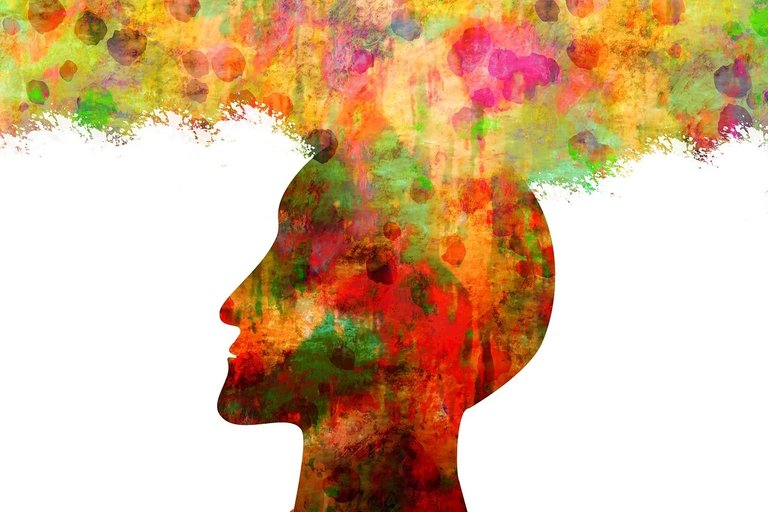Let's Explore our Memory: Retrieval
In today's blog-isode, Let's think about how we remember things(acquire memories) as we have learned in previous series.
Now, let's talk about how we bring those memories back when we need them(retrieve from storage).

It's clear that just because we remember something doesn't mean we can always bring it back when we want to.
What I mean is:
*Memory storage is not the same as memory retrieval *
and that's just obvious right?
Sometimes, we know something is stored in our memory, like a name or a fact, but we can't recall it at a specific time. When this happens, we say the memory is inaccessible.
Gaining access to the trace may be restored by an appropriate retrieval cue, a stimulus that opens the path to the memory.
Now this has been shown many times in experiments. People(subjects) are given a list of words which belongs to different groups, and asked to remember them. Sometimes, they forget to remember any words from one group. But if they're reminded of the group name, they quickly remember several words from that group.
You see, the very words in which we describe our memorial functions, shows that there is a distinction between storage and retrieval:
We are reminded , we remember, we recollect - infact, even our vocabulary suggests that what is now brought up was not available before.
Remembering things that were temporarily forgotten(inaccessible memories) because of certain reminders(appropriate retrieval cues) is usually a pretty ordinary thing. For example, if we can't remember where we parked during a shopping trip, but then someone reminds us that we stopped at a drugstore first, we might suddenly remember that we squeezed the car into a tight spot just across the street.
But you see, sometimes, the impact is a lot stronger. Some people have said (and I personally have experienced) they couldn't remember basic things about their hometown they left years ago. Then, when they finally went back for a visit and just got to the edge of town, suddenly all the memories came flooding back. And often, they felt the same strong emotions they felt years ago.
Physical locations are just one way to trigger memories from the past. A word, a feeling, a scent, or meeting a school friend after many years - any of these things can bring back memories we thought we had completely forgotten.
Now let's ask ourselves, what are the characteristics of an effective retrieval cue?
It's clear that not every reminder will actually help us remember what we stored. The best chance of success in remembering is when the situation we're in, matches the one when we first learned or stored the information. This is often called the principle of encoding specificity.
One simple test is to vary the physical conditions during which the subject learns and is later asked to remember.
Here's a striking example for you:
Researchers studied scuba divers who had to memorize a list of unrelated words either on land or underwater. Later, they were tested for memory recall in the same place where they learned, or in the opposite place. The findings showed a clear pattern: they remembered best in the same environment where they learned.
Similar effects can be obtained without going underwater. In one study, a researcher gave people a big list of words. Then, a day later, he surprised them with a memory test in either the same room or a different one with different size and furniture.
People remembered much more when they were tested in the same place where they learned. But the researcher found an easy way to fix this problem with the environment.
Another group of people went to the new room. But before they took the memory test, they were asked to think about the room where they first learned the lists. They were told to think about what it looked like and how it made them feel.
By doing this, they imagined the old environment in their minds. When they took the memory test afterward, these people did just as well as those who didn't change rooms.
It seems that what's important isn't necessarily that the retrieval cues exactly match the conditions when the information was learned; what matters is how the person thinks about those conditions when trying to remember.

The Bus Stops Here for today:
Thank you once again, for always joining me. I hope you enjoyed today's episode. Let me know your thoughts on this topic or on my blogs. As always, I enjoy writing these, and I want to make sure you enjoy reading them. Until tomorrow, take care.
Reference and links:
https://www.ncbi.nlm.nih.gov/pmc/articles/PMC7909183/
https://www.verywellmind.com/memory-retrieval-2795007
https://www.ncbi.nlm.nih.gov/pmc/articles/PMC5664228/
https://pressbooks.online.ucf.edu/lumenpsychology/chapter/reading-retrieval/
Thanks for your contribution to the STEMsocial community. Feel free to join us on discord to get to know the rest of us!
Please consider delegating to the @stemsocial account (85% of the curation rewards are returned).
Thanks for including @stemsocial as a beneficiary, which gives you stronger support.